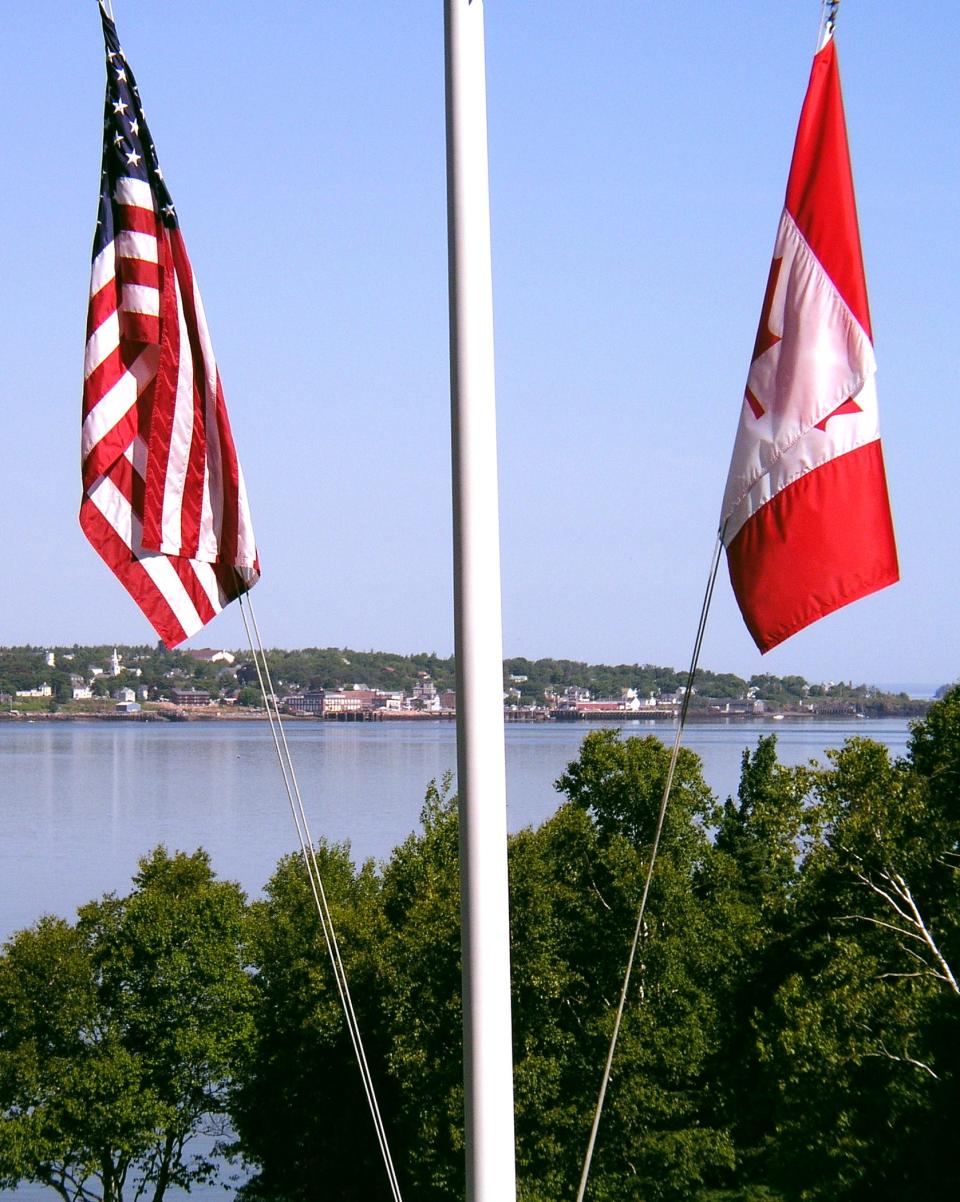Senators ask Trump to end blanket closure of U.S.-Canada border
All four U.S. senators from Maine and New Hampshire say it's time to take a more targeted approach to restrictions along the U.S.-Canadian land border as opposed to the blanket closure that's been in place since mid-March, after the COVID-19 pandemic was declared.
Rather than extend the current closure order, which has been extended each month and runs through Oct. 21, Sens. Susan Collins, R-Maine; Angus King, I-Maine; Jeanne Shaheen, D-N.H.; and Maggie Hassan, D-N.H., are asking President Donald Trump to apply restrictions on a local basis given the low risk of significant cross-border transmission along their states' borders with Canada.
Six months on: US borders with Canada, Mexico to remain closed through Oct. 21
"As states and localities in the interiors of our nations continue to reopen, we are concerned that border communities that have historically depended on day-to-day cross-border commerce will be left behind, even as their risk of COVID-19 transmission appears to remain low," the bipartisan quartet wrote in a letter to Trump Wednesday.
US-Canada border closure: What it means for travelers

"The protracted closure of the world’s longest international land border to all but essential travel has put immense strain on the communities that straddle the border," they warned.
The group said they were similarly concerned about family members and loved ones caught on opposite sides of the border.
"We ask that your administration ease the ongoing restrictions on non-essential travel, or alternatively categorize additional types of cross-border travel as essential," Collins, King, Shaheen and Hassan wrote. Those measures, they said, "will recognize the reality of the health risks along much of the border while also help support our border communities as we continue the global fight against the COVID-19 pandemic."
According to Canada's Border Services Agency, anyone who is not a citizen or permanent resident of that country must prove they are traveling for an essential purpose, are only transiting or are an immediate family member of a citizen or permanent resident. They must also have a plan to quarantine for 14 days unless they are exempted.
Thirteen states border Canada, although two (Ohio and Pennsylvania) have only maritime borders, according to the International Boundary Commission. Alaska and Michigan have the longest borders at 1,538 and 721 miles, respectively.
Maine, which neighbors Quebec and New Brunswick, has the third-longest border at 611 miles and has two dozen land crossing points. New Hampshire shares 58 miles of border and has one crossing point.
According to the U.S. Centers for Disease Control and Prevention, Maine has had 5,468 total cases of COVID-19, 233 of which were reported in the last seven days. Its infection rate is 408 cases and 10 deaths per 100,000 residents.
New Hampshire has had 8,317 total cases, with 273 diagnosed in the last week. Its infection rate is 613 cases and 32 deaths per 100,000 residents.
According to data from the Public Health Agency of Canada and the two provinces that border Maine and New Hampshire, Quebec, which borders both states, has the highest overall number of COVID-19 infections of any of the country's 10 provinces at 75,221 total cases as of Thursday with nearly 6,000 new ones reported in the last week, along with 30 deaths.
New Brunswick, which shares most of its crossing points with Maine, had just one new case in the last week, making for 200 total cases and the second-lowest total in the country. Only Prince Edward Island and the country's three territories have better numbers.
Want to escape? See where can Americans vacation internationally right now
This article originally appeared on USA TODAY: US-Canada border closure: Senators ask Trump to end broad restrictions

